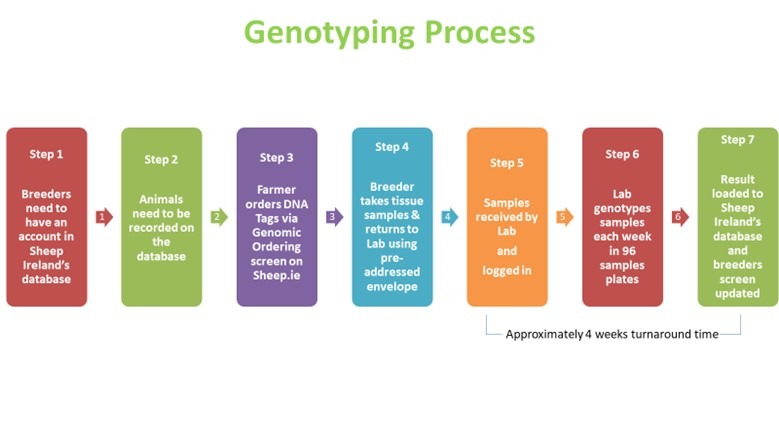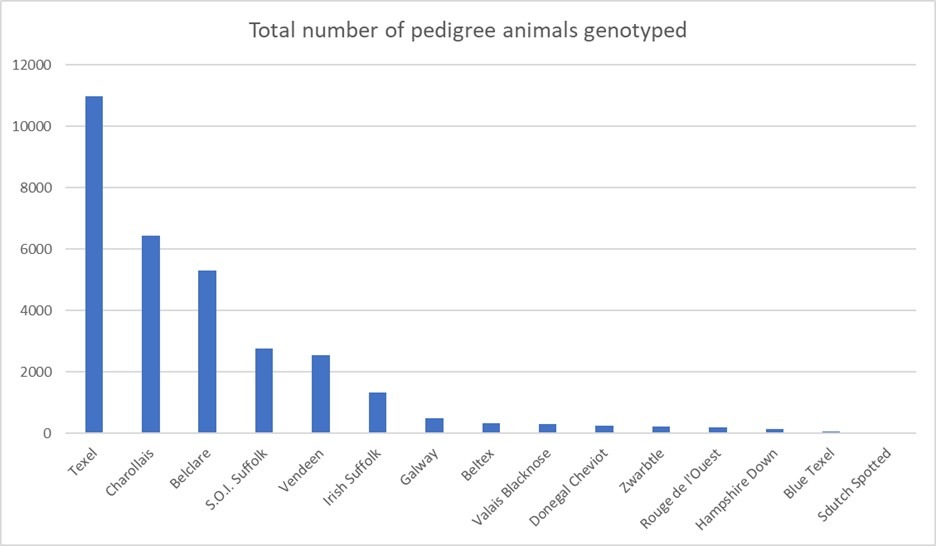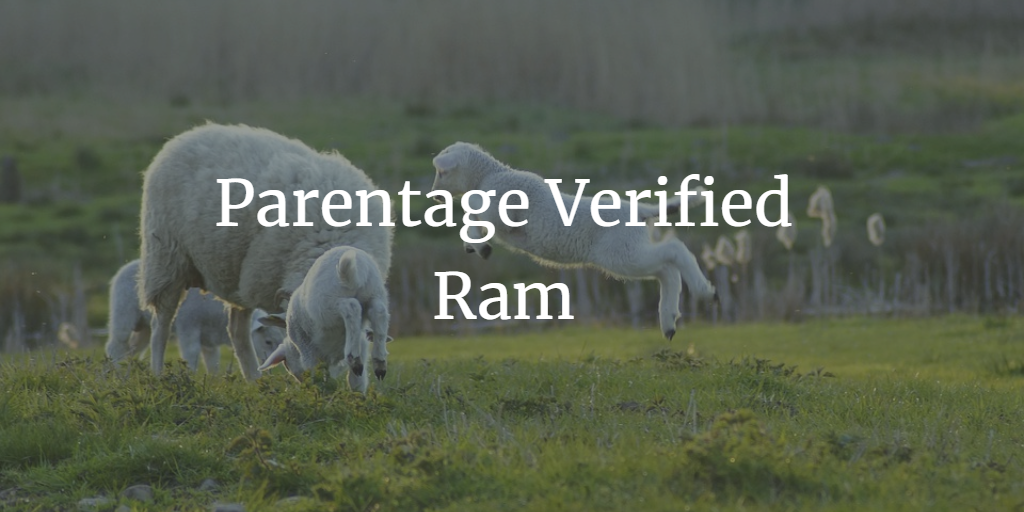When we talk about a “genotyped animal”, it means that a Sheep Ireland breeder with an animal on Sheep Ireland’s database had ordered a tissue tag to sample the animal. That sample has been taken and analysed in the lab. The process is completed when the DNA result is sent to Sheep Ireland’s database, and the results are included in the Genomic evaluations and parentage verification steps.
For genotyping, ear tissue tags are the simplest of all methods for collecting DNA. It consists of taking a small tissue punch from the ear using a specific ear tagging applicator. The container into which the sample is collected contains a liquid agent to preserve the sample.
This is a straightforward process where the genotype must be ordered through the breeder’s Sheep Ireland account. Once the farmer orders genotyping, the tag will arrive within 3-5 working days at their postal address, at which point the tissue sample can be taken from the ear of the animal.
Special care should be taken to ensure the correct animal is sampled by ensuring the animal’s tag number matches the genotyping tag. The vial containing the tissue is then sent to the lab in the pre-addressed envelope provided, and the farmer will receive the results in three to four weeks.

DNA collection
- Follow the DNA collection guide enclosed with your DNA tags
- Ensure the sheep is properly restrained
- Only take samples from clean & dry ears
- Disinfect the ear after the sample is taken
- Leave the tag in the ear
Handling DNA Samples
- Refrigerate samples ASAP (avoid freeze-thawing of samples)
- Send samples to the Lab Mon/Wed to avoid samples being stuck in the post over the weekend
- Samples can be kept refrigerated, but we recommend sending them immediately after sampling.
Genotyping an animal gives a breeder a lot of information, including:
- Parentage verification and predictions
- DAFM-approved Scrapie (where parents have also been genotyped)
- Genomic Inbreeding co-efficient
- Genomic Evaluations
There are many more benefits to genotyping; gender determination, Genomic inbreeding results and the monitoring of major and lethal genes in breeds.
Currently, in the LambPlus programme, more than 14,000 pedigree and commercial animals were genotyped in 2022 alone. In total, there are over 75,000 animals genomically tested on the Sheep Ireland database.

Genotyped Ram Action in the Sheep Improvement Scheme
Every participant is required to purchase a new ram that has been genomically tested via Sheep Ireland.
For Lowland flocks, the ram must also be 4 or 5 Star, while for hill flocks, the ram must be DNA sire verified (The lowland option is also available to hill flocks). In all cases, the ram must be type 1, 2 or 3 for scrapie. This offers a massive opportunity for pedigree flocks to grow, attract new customers and increase genetic gain.
Lowland ram criteria:
- Be genomically tested with Sheep Ireland
- Have a 4 or 5-star genomic evaluation
- Have a scrapie type of 1, 2 or 3
Hill ram criteria:
- Be genomically tested with Sheep Ireland
- DNA Sire verified
- Have a scrapie type of 1, 2 or 3
What are the benefits of genotyping hill rams?
The immediate benefits are more accurate and increased information for any farmer using hill rams. It serves as a protection against inbreeding and dilution of breed types. It gives greater confidence to ram purchasers when choosing their rams, but ultimately it lays the foundation for breed improvement and promotion for the future. Other immediate benefits delivered by genotyping are the scrapie genotype status of hill rams and the inbreeding coefficient % (level of inbreeding) in each ram.
For more information about genotyping, click on these links:
What is genotyping and why is it important? – Sheep Ireland
How to Order Genotypes via Genomic Ordering Screen – Sheep Ireland

